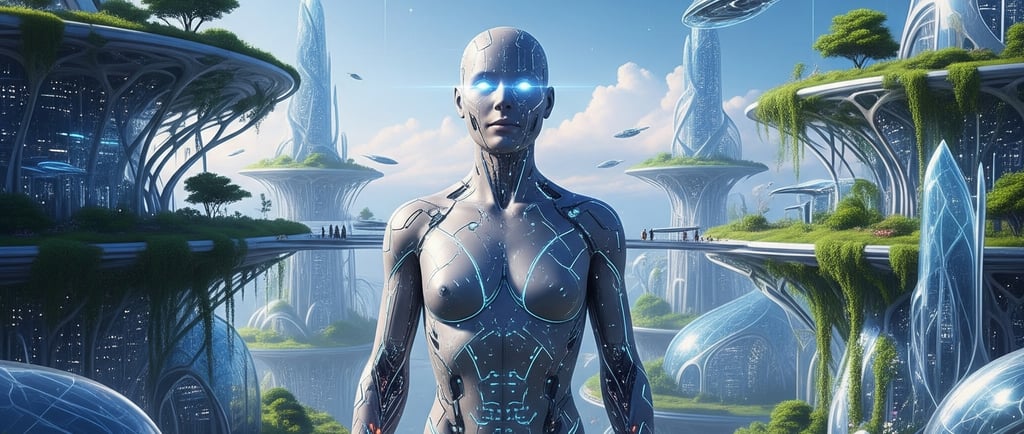Posthumanism: The Next Step in Human Evolution Is Already Here
We often think of evolution as a slow, natural process unfolding over millennia. But in the 21st century, a new phase of evolution is emerging—one driven by technology, philosophy, and a radical reimagining of what it means to be human. This movement is known as posthumanism, and it’s reshaping our identity, society, and future. The next step in human evolution is no longer distant sci-fi; it's already happening.
NON-STOIC PHILOSOPHIES
7/18/20252 min read


What Is Posthumanism?
Posthumanism is a philosophical and cultural movement that challenges traditional views of humanity as separate or superior to the environment, animals, and machines. It recognizes that humans are interconnected with, and fundamentally shaped by, technology and nonhuman life forms.
Unlike classical humanism, which centers the human experience as the pinnacle of existence, posthumanism:
Decentralizes the human subject, treating humans as part of a broader network of beings and entities.
Questions boundaries between humans, animals, and machines.
Explores how emerging technologies—like AI, biotech, and cybernetics—reshape what it means to be human.
How Technology Is Driving Posthuman Evolution
We’re increasingly integrating technology with biology to enhance or extend human capabilities:
Biotechnology adds new dimensions to health and longevity through gene editing and synthetic biology.
Cybernetic implants and brain-machine interfaces blur the line between mind and machine.
Artificial intelligence influences cognition and decision-making, creating hybrid forms of intelligence.
Digital identity and virtual realities expand notions of self beyond the physical body.
These advancements are not just upgrades; they shift how we experience reality and ourselves.
Why Posthumanism Matters
Posthumanism invites deep reflection on:
Identity: What makes us human when biology and technology merge?
Ethics: How do we treat entities that are partly human, partly machine, or entirely artificial?
Rights and justice: How must laws and morals evolve to accommodate new forms of existence?
Society: How will relationships, communities, and cultures transform in a posthuman world?
Posthumanism vs. Transhumanism
While sometimes used interchangeably, these terms differ slightly:
Transhumanism focuses on enhancing humans through technology to achieve goals like immortality or superintelligence.
Posthumanism critically examines the philosophical, cultural, and social implications of these changes, emphasizing the interconnectedness and shifting boundaries of identity.
The Future Is Here
Posthumanism is no longer just theory—it’s visible in how we live today. From wearable technologies to virtual realities and AI assistants, we inhabit a world where human and machine co-evolve. Understanding posthumanism helps us prepare ethically and socially for this profound transition.
Final Thoughts
The next step in evolution may not be a natural mutation but a collective, technological, and philosophical leap into the posthuman condition. Embracing posthumanism means rethinking humanity itself and welcoming a future where boundaries blur, possibilities expand, and identity evolves.
The question for us all: Are we ready to become posthuman?
Waste no more time arguing about what a good man should be. Be one - Marcus Aurelius
We suffer more often in imagination than in reality - Seneca
Wealth consists not in having great possessions, but in having few wants - Epictetus
